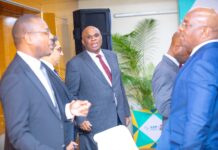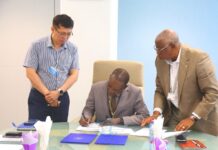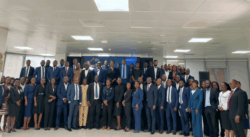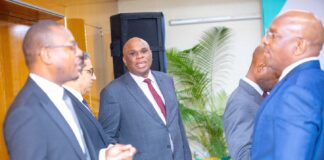By Ernest Bako WUBONTO
The Korle Klottey Municipal Assembly (KoKMA) has reported a surge in property tax revenue of GH₵7.3million for the first quarter of 2025.
The assembly’s deployment of digital taxation systems has increased property tax revenue from GH₵466,568 in the first quarter of 2024 to GH₵7,294,090, representing a whopping 1,463.38 percent growth.
Based on this performance of the property taxation digital system, the KoKMA’s internally generated funds (IGF), as of the end of the first quarter, shot up to over GH₵10million.
This represents a 48.79 percent increase from the GH₵7.01million recorded in the same period last year.
Municipal Chief Executive (MCE) of the assembly, Alfred Gaisie, in an exclusive interview, noted that with this unparalleled performance, the municipality has revised its revenue projections upward.
The KoKMA is now estimated to generate about GH₵45million in IGF for the year 2025, with property rate expected to contribute over GH₵20million, representing nearly more than half of the estimated target.
Other streams of internal revenue generation, such as market tolls, levies, permits and certificates, are to generate GH₵20million, while grants constitute GH₵7million.
“This remarkable growth we attribute to the successful implementation of a digital taxation system software to streamline revenue mobilisation and reduce inefficiencies as well as corruption on the part of our tax collectors,” he said.
He further elaborated that this outstanding achievement has underscored the effectiveness of digital reforms in local revenue collection, setting a benchmark for other municipalities.
KoKMA to help other MMDAs digitalise property tax
To that effect, the KoKMA has been commissioned by the Greater Accra Regional Minister to work with Local Government Services and the Regional Coordination Council (RCC) to train other Metropolitan, Municipal and District Assemblies (MMDAs) to understudy and adapt the digital platforms to transform their property taxation system.
The KoKMA has already held training sessions for some of the MMDAs over the past week, and the capacity building is ongoing for the next few weeks.
About 40 assemblies from all the regions have, so far, registered and are mobilising resources for training.
Challenges
Head of Budget and Rating Unit, KoKMA, Ernest Tagoe, in a presentation, highlighted that to maximise gains from property tax using digital systems, key reforms required include political will, building an efficient and effective billing and payment system, an accurate database, building human resources capacity and provision of logistics.
Areas of investment
The KoKMA MCE mentioned that based on the municipality being prone to natural disasters like floods, the assembly is investing in disaster prevention measures such as the construction of drainage to allow water flow and the demolition of properties in waterways.
The municipality’s prime location is also driving investment in market redevelopment projects to enhance value and create opportunities for market women.
“The KoKMA is also constructing shops at Tema Station, embarking on routine cleaning of public spaces and markets, as well as desilting of storm earth drains and the dredging of Klottey Lagoon to be commenced soon,” said the MCE.










